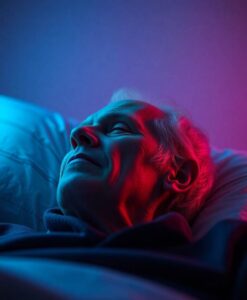This study’s finding that CPAP use was associated with much lower odds of developing Parkinson’s important. It points to treatments for a common, underdiagnosed condition that could shift someone’s neurological trajectory. For clinicians and caregivers, these results add to the case for screening and managing sleep-disordered breathing as part of a broader plan to protect aging brains.

The implications go beyond any single diagnosis. Understanding how sleep quality interacts with neuronal vulnerability opens pathways toward prevention, inclusivity in care, and practical steps people can take now. Follow the full article to see how this large study connects sleep treatment to brain outcomes and what that could mean for preserving function and opportunity as we age.
A massive veteran study found a strong connection between untreated sleep apnea and a higher chance of Parkinson’s. CPAP users had much lower odds of developing the condition. Researchers believe that repeated dips in oxygen during sleep may strain neurons over time. The results suggest that better sleep might help protect the brain.



